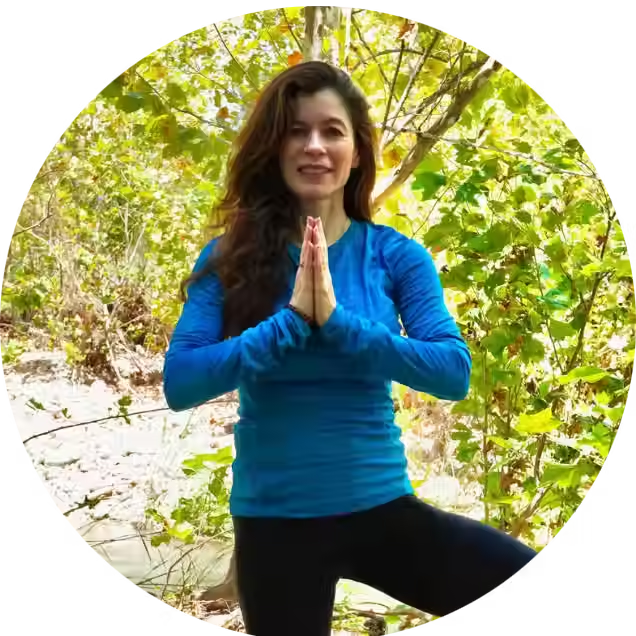Returning to What’s True, Part VII - The Art of Stepping Back
- Lane Igoudin
- Mar 1, 2022
- 4 min read
Updated: Mar 2, 2022
If you are like me, you are involved in many different vocations, projects, and activities, while trying to give your best to every one of them. You spend your energy freely, and others know that – they expect that, and they grow to rely on your seemingly boundless drive. Would it be surprising then to feel, at times, overextended and overwhelmed?
Step back. You don’t have to take responsibility for all that happens.
Ask yourself, can you really do this right now? Feel the answer in your body. Your body knows better than your mind. Are you really noticing your life?
You might feel the natural shift in what you can and cannot do, should and should not do. Recognize this subtle change and accept it for what it is.

The art of wise, strategic passivity
This non-doing, or non-striving, is the noblest kind of action in the philosophy of a close relative of Zen – Tao, or Daoism. Tao teaches to be flexible and respect the natural flow of time and nature. You can’t stop this flow, so there is no need to force anything. Just be present, humble, and modest.
This combination of mindful presence and lack of imposition is a skill that should be cultivated. Non-doing doesn’t mean doing nothing, being passive or removed from life. It is the art of effortlessly going along with the ebb and flow of life. You can only respond effectively to what a situation demands when you put our own ego-driven plans aside and see it clearly.
Leo Tolstoy, influenced by Tao philosophers, questioned the ethical value of work for work’s sake. “I've always been shocked by the astonishing, dominating especially in Western Europe, opinion that work is something like virtue,” he wrote in an essay called “Non-Activity.” “I always noticed the opposite: determined work, ant-like pride of one’s own work makes not only an ant, but a cruel human. The greatest villains of mankind have always been particularly busy and preoccupied, not leaving a moment to stay with themselves without occupation or amusements. But even if the love of work is not an obvious vice, it can under no circumstances be called a virtue. . . [Work] in our wrongly organized society is primarily a moral anesthetic, like smoking or alcohol, to hide the wrongness and depravity of your life from yourself.”
Strategic passivity may seem contrary to both traditional Ashkenazi values that I grew up with and to the Puritan ethic of the Western society, valuing busyness, 16-hour workdays, where the work itself becomes the end-goal. Yet it isn’t, in fact, contrary to the Jewish teachings. They warn of trying to force something to happen where or when it isn’t meant to happen as a power struggle between and individual and the Lord.
Are you getting in G-d’s way?
A few years ago, I had to radically change my parenting style as one of my kids entered teenage years. I was still very much hands-on: getting between them and their schoolwork and counselors, intervening in the fights between them and their friends. (I must confess I am a bit of a Yiddishe mame, trapped in a male body.)
It wasn’t working. And it took me time to realize that I needed to step back. The Lord has set a certain path for that teen, and they have to learn to follow it. They will go on to fail some classes and relationships, but also learn how to handle these challenges on their own. I am still here, always ready to support them, but the Lord, not I, knows exactly what that teen needs. And only the teen can do the work the Lord wants them to do.
“If Hashem doesn’t want you to have it,” writers Rabbi David Ashear in Living Emunah, “you’re not going to get it until He does.” In other words, what you see before you is a limited range of options, but there are other options, and only the Lord knows what they are.
So step back. Let Him do His job. “If the Lord doesn’t build a house, in vain do its builders labor on it. If the Lord doesn’t watch over a town, in vain does the watchman look out.” (Solomon’s Song of Ascent; Psalm 127)
Alan Morinis, a contemporary Mussar master, teaches that “recognizing God’s role in your life will help to counter anxiety.” With bitachon – trust in the Lord – things will unfold as they should, no matter what they seem like at the moment. “Knowing that you are sheltered under the wings of the divine quiets all tremors of the heart.”
Stepping back is a hard practice because it requires both this deep trust in the Lord and equanimity – calm, composed response to the situation. Doing so though allows you to see the same situation from a different perspective, to accept things just as they are. Non-doing opens a path to make better, wiser choices, appreciate this one life given to you, and re-affirm your holiness.
See other posts in the Returning to What’s True blog series on mindful practices throughout the day to return to our sacred selves:
__________________________
Lane Igoudin, M.A., Ph.D., is professor of English and linguistics at Los Angeles City College. He regularly blogs for Applied Jewish Spirituality and produces Blessing the Sea, a monthly newsletter on Jewish mindfulness. For more information, please visit his website.




Comments